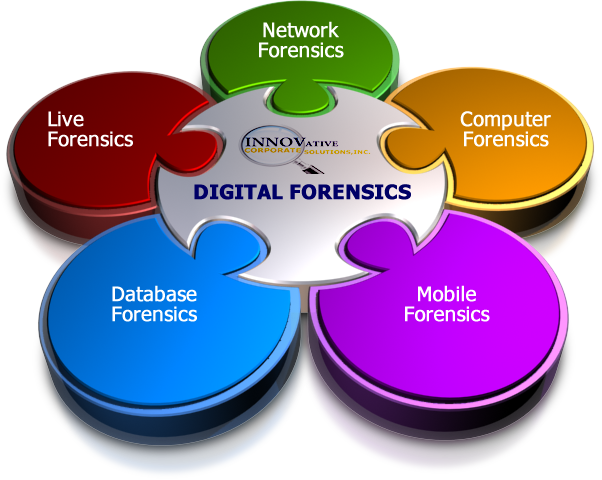With the development of online education, there is now a myriad of resources you can use to introduce yourself in the world of forensics and broaden your horizon. Crime scene investigation and forensic analysis are competitive niches, and you should use any edge you can get – especially as the quality of the online courses is really high. We’ll try to update this page as much as possible, to keep you up to date with the forensics courses you can take online. These are the Massive Open Online Courses:
| Course | |
| University | Nanyang Technological University |
| Platform | Coursera |
| Start date | 19th May, 2014 |
| Duration | 8 weeks |
The course aims to explain the scientific principles and techniques behind the work of forensic scientists and will be illustrated with numerous case studies from Singapore and around the world. Some topics to be included are:
- 1. How did forensics come about? What is the role of forensics in policework? Can these methods be used in non-criminal areas?
- 2. Blood. What is it? How can traces of blood be found and used in evidence?
- 3. Is DNA chemistry really so powerful?
- 4. What happens (biologically and chemically) if someone tries to poison me? What happens if I try to poison myself?
- 5. How can we tell how long someone has been dead? What if they have been dead for a really long time?
- 6. Can a little piece of a carpet fluff or a single hair, convict someone?
- 7. Was the Emperor Napoleon murdered by the perfidious British, or killed by his wallpaper?
-
Course Lecturer Dr. Sereen M.B Bataineh Platform Open2Study Start date 2nd June, 2014 Duration 4 weeks Have you ever thought about infectious diseases and why we get infected? What is the causative agent? In this course you will be touring through four modules, starting by taking a close look at the bacterial cell structure and functions which will then lead you to the study of viruses. What will I learn?
- 1. Bacterial cell structure and function
- 2. Viruses and their structure
- 3. How Forensic Microbiology has evolved
- 4. Different types of Forensic Microbiology
- 5. Differences in Forensic Science versus Forensic Microbiology
- 6. How to read a scientific journal and review one in a case study
- 7. Genotyping techniques
- 8. The role of DNA and RNA in Microbiology and Forensic Science
-
Course University University of Leicester Platform FutureLearn Start date 31th Mar, 2014 (still going) Duration 6 weeks This course begins by introducing students to the historical context of forensic science and how science is used by the police during criminal investigations. We will then explore some of the implications that these forensic techniques have on the criminal justice system, such as controversies surrounding biometric databases, the portrayal of forensic science in popular media (e.g. the CSI Effect), and how forensic science is used in the courtroom. Finally, we will consider what the future of forensic science looks like and where the discipline may be heading in the years to come.
Course University The Open University Platform FutureLearn Start date 9th June, 2014 Duration 8 weeks Explore how your own mind works, and discover how the limitations of the human brain can lead to major miscarriages of justice. Despite advances in forensic science, eyewitness testimony remains a critical component of criminal investigations. Psychological research has revealed the dangers of relying on evidence gained from an eyewitness and also how careful the police need to be when questioning witnesses.
Course University Johns Hopkins University Platform Coursera Start date 15th Sep, 2014 Duration 6 weeks At the end of this course, students will better understand chemicals in the environment, exposure, toxicology, biomonitoring, and related public health and policy implications.
- 1. Chemicals in our environment: What is a chemical and how are we exposed?
- 2. Toxicology: What do chemicals do in our bodies?
- 3. Biomonitoring: Who and how are we measuring these chemicals in our bodies?
- 4. Health effects of chemicals: How do we figure out how chemicals affect our health?
- 5. Chemicals policy: What do we do about chemicals & health?
- 6. Case studies
-
Course University University of Queensland Platform EdX Start date 21th Oct, 2014 Duration 8 weeks This course systematically explores the effectiveness of the law and justice system from a psychological perspective. By experiencing a fictional case first hand, you will learn about the psychology of law and some of the misconceptions commonly held about criminal justice.
Course University Penn State University Platform Coursera Start date 25th Jun, 2014 Duration 7 weeks In this course we will explore wrongful convictions answering several key questions:
- 1. What do we mean by “wrongfully convicted,” and how common are wrongful convictions?
- 2. Who are wrongfully convicted?
- 3. Where in the criminal justice system do things go wrong to lead to wrongful convictions?
- 4. Why do wrongful convictions occur?
- 5. How can social science contribute to understanding, and preventing wrongful convictions?
-



